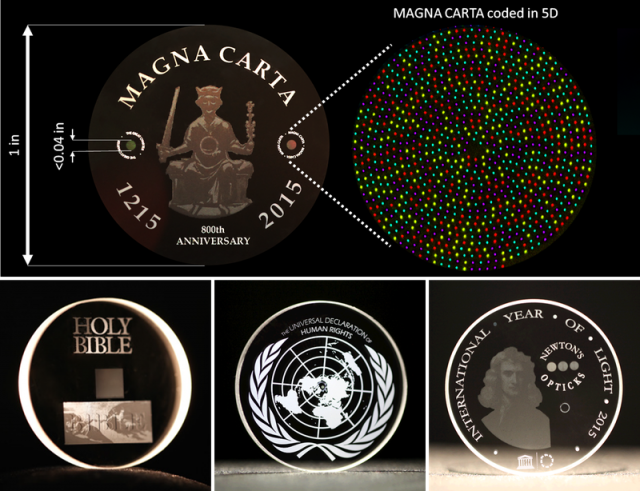MI weekly selection #169
MI weekly selection #169

Disks can store information for billions of years
A new five-dimensional data storage method has been developed that researchers say can last up to 13.8 billion years, withstand extreme heat and hold all sorts of information. The data are encoded into minuscule nanostructures in small glass discs.
New carbon structure can hold liquids and gases and survive a vacuum for months
A carbon honeycomb structure has been discovered that may one day be used to store gases and liquids, or to build more complex compounds. The 3D carbon-sheet cluster has six-sided cells that can hold large quantities of gases and survive a vacuum for months without degrading.
Children born to women with Zika virus may have higher risk of mental illness
Children born to pregnant women infected by the Zika virus may be at higher risk for mental illness as they get older. “I wouldn’t be surprised if we saw a big upswing in ADHD, autism, epilepsy and schizophrenia,” said W. Ian Lipkin, director of Columbia University’s Center for Infection and Immunity. The virus has already been linked to multiple cases of microcephaly.
Astronomers analyze dry atmosphere of super-Earth
Scientists have detected and analyzed the atmosphere of a super-Earth for the first time using the Hubble Space Telescope. The atmosphere of exoplanet 55 Cancri e, about 40 light-years away, is devoid of water vapor and is filled mostly with hydrogen and helium, astronomers say.
Antarctic ice hiding iron-rich meteorites
A trove of meteorites rich in iron might lie just below the surface of Antarctic ice, burying themselves as the sun heats them enough to melt the ice, waiting for scientists to find them. Researchers used lab experiments and a mathematical model to reach their conclusions.
1 comment
[…] Feb 21, 2016 | Humanities & Social Sciences, Noticias, Science, Technology, Weekly Selection | 0 […]